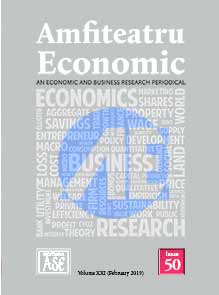Economic Modeling in the Management of Transition to Bioeconomy
Economic Modeling in the Management of Transition to Bioeconomy
Author(s): Cristian Busu, Mihail BuşuSubject(s): Economy, Business Economy / Management
Published by: EDITURA ASE
Keywords: bioeconomy; behavioral model; technology; research; innovation; environment;
Summary/Abstract: The management of the transition to bioeconomy has developed relatively recently, to cope with the challenges of the 21st century. The determinants of transition are related to economic, social, biological and environmental evolution. In particular, the envisaged factors consist in demographic increase, excessive unsustainable consumption, industrial development, climatic changes, depletion of traditional or non-renewable resources. This article presents, first, the conceptual model of the transition process, making a review of the specialized literature. The authors render applicability to the sustainable economic model developed in the primary sector, which is the first biomass-producing industry with potential to generate new products, used in the secondary and tertiary industrial sectors. The second part of the article defines the behavioral research model. The article aims at providing an applicative perspective to the behavioral model, through the economic integration of data collected from the biomass industry. The third part of the article presents the results of the case study, interpreted in the light of the responses to the questionnaire transmitted to the respondents. Data were collected using a questionnaire addressed to management and employees in the biomass industry. Structural equation modeling (SEM) was used, and d splints were analyzed by software-ul Smart PLS 3. One of the main goals of this paper is to identify and assess the relationship between the sustainable development of Bioeconomy through the indicators of performance obtained by producers of biomass in the framework of the economic model of transition to the bioeconomy. The conclusions of our research are in line with the existing literature and confirm the theoretical assumptions, underlining that the performance and sustainable development of the producers is a direct consequence of the association of a number of factors such as innovation and technology, regulation, knowledge and skills of the human factor.
Journal: Amfiteatru Economic
- Issue Year: 21/2019
- Issue No: 50
- Page Range: 24-40
- Page Count: 17
- Language: English

